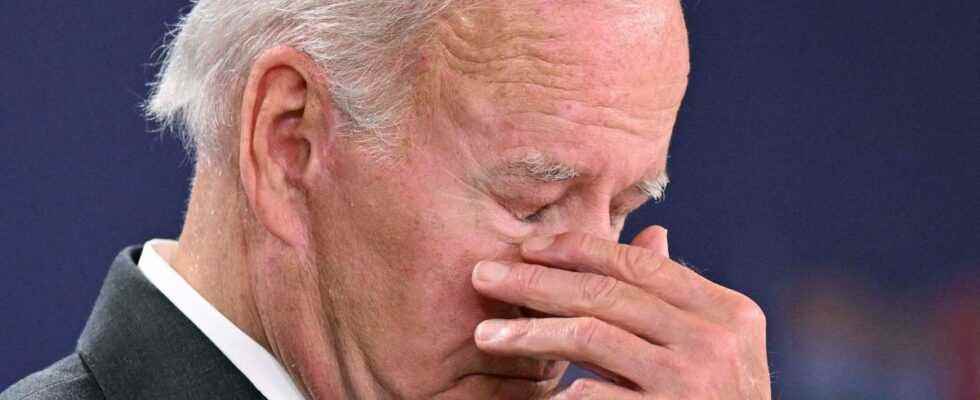A week after his trip to the Middle East, Joe Biden fails to bring down the price of oil. It climbs, on the contrary, by 5%.
Oil prices climbed nearly 5% on Monday, galvanized by supply fears after US President Joe Biden visited Saudi Arabia (the world’s top crude exporter) with very little notable progress. Around 2:15 p.m. GMT (4:15 p.m. in Paris), a barrel of Brent from the North Sea, for delivery in September, gained 4.71% to 105.92 dollars. A barrel of American West Texas Intermediate (WTI), for delivery in August, took 4.46% to 101.94 dollars.
Read alsoJoe Biden in the Middle East: ‘The mighty on his knees’
SEE ALSO – At the G7, Emmanuel Macron challenges Joe Biden on their oil strategy
Oil prices had fallen significantly in recent days, due to fears of a slowdown in the global economy, accentuated by inflation levels. However, these fears are exaggerated, according to Tamas Varga, analyst at PVM Energy, who argues that “supply constraints will once again become the main driver of the market“. The dollar’s decline on Monday also helped push crude prices higher as crude became more attractive to investors using other currencies as the price of oil is expressed in dollars.
A visit to the Middle East to bring down the high price of oil
Meanwhile, US President Joe Biden made his first official tour of the Middle East last week with a controversial visit to Saudi Arabia, hoping for a boost from the world’s largest crude oil exporter to bring down the high price of oil. oil. “There are no signs of an imminent breakthrough in US administration efforts to persuade Gulf states to pump more oilsays Susannah Streeter of Hargreaves Lansdown. Joe Biden assured that his talks with Saudi officials on Friday were fruitful, but cautioned not to wait for a concrete impact “before several weeks“.
Read alsoFrom the Middle East, Joe Biden leaves empty-handed
His national security adviser, Jake Sullivan, tempered expectations, however, telling reporters that any action “will be conducted within the framework of OPEC+», the Organization of the Petroleum Exporting Countries and their allies. With the OPEC+ quota system due to end in September, the next meetings of the alliance will be scrutinized by investors. Furthermore, according to Ms. Streeter, “uncertainty grows over the impact of a possible Russian crude price cap amid the war in Ukraine, as Moscow prepares for its next offensive“.
Read alsoJoe Biden wants to enlist Saudi Arabia in the face of energy and security challenges
At the end of June, the leaders of the G7 countries pledged to develop a “mechanismto cap Russian oil prices globally to deprive Moscow of some of its energy windfall. UBS analysts also note in a note that the progressive European embargo on Russian black gold will lead to “a reduction of almost 3 million barrels per day of crude oil and petroleum products from Russia by the end of the year” and “further tighten the market“. “In the event that oil is used as a weapon, a real shortage could drive prices up dramaticallysays Tamas Varga. The current situation, however, does not indicate a serious shortage of Russian oil, he tempers.
SEE ALSO – Energy: Emmanuel Macron calls on the G7 to coordinate to “better hold gas and oil prices”
